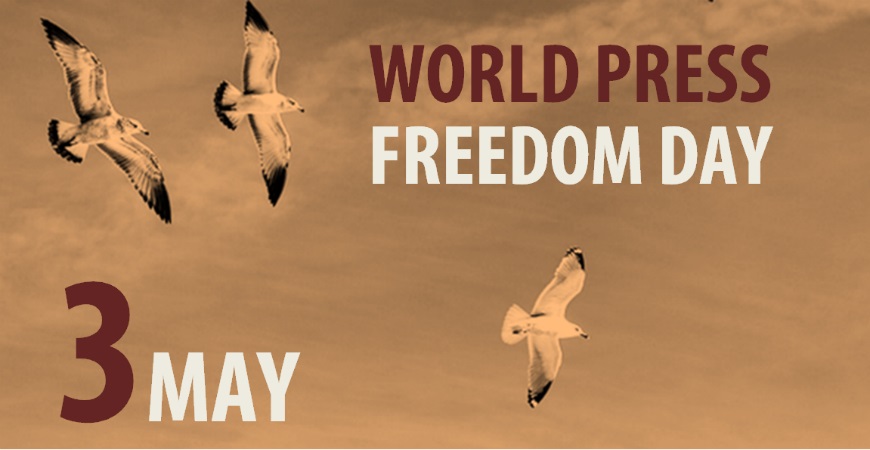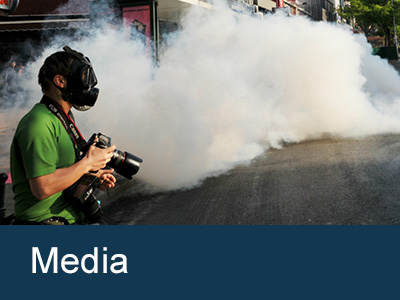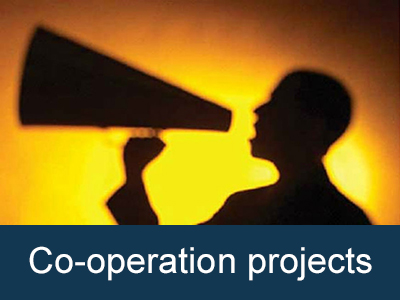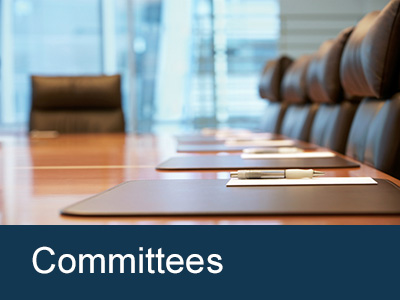Launched by the United Nations in December 1993, the World Press Freedom Day became the internationally recognised instance to reassess the significance of free media for a democratic society. It is a date to encourage and develop initiatives in favour of press freedom, and to assess the state of press freedom worldwide. It serves as a reminder to governments of the need to respect their commitment to press freedom and is also a day of reflection among media professionals about issues of press freedom and professional ethics. Just as importantly, World Press Freedom Day is a day of support for media which are targets for the restraint, or abolition, of press freedom. It is also a day of remembrance for those journalists who lost their lives in the exercise of their profession.
Council of Europe action for press freedom
The Council of Europe's action to promote press freedom and freedom of information is based on Article 10 of the European Convention on Human Rights. Aiming at promoting an enabling environment for the freedom of expression, the Council of Europe regularly assesses the media freedom situation in its member states, provides recommendations and develops cooperation tools and frameworks. It equally exposes and condemns most serious violations of journalist’s rights and attacks on media freedom and explores new challenges arising in the context of new societal and technological developments.
Assessing challenges
In his annual report “State of Democracy Human Rights and the Rule of Law”, the Secretary General of the Council of Europe assesses the freedom of expression in member states in respect of legal guarantees, protection of journalists and other media actors, media independence, plurality and diversity, and freedom of expression on the internet. The report regularly identifies trends and provides specific recommendations.
Since April 2015 the Platform for the Protection of Journalism and Safety of Journalists collects and disseminates information on the most serious concerns about media freedom and safety of journalists in Council of Europe member states in collaboration with a number of partner organisations.
Framing risks
A number of studies and reports have been commissioned by the Council of Europe to shed light on particular aspects related to media freedom.
The “Journalism at Risk” study emphasises the rising death toll among journalists, physical attacks, acts of intimidation, judicial harassment, imprisonment, muzzling legislation, smear campaigns and abuse of financial levers.
The “Freedom of Expression and Defamation” review, published in September 2016, examines the case law of the European Court of Human Rights. It explains how defamation laws that are overly protective of reputational interests and that provide for far-reaching remedies or sanctions can have a chilling effect on freedom of expression and public debate.
The study “Journalists under pressure”, conducted among 940 journalists and other news providers in the 47 Council of Europe member states and Belarus assesses the prevalence and impact of unwarranted interference on journalists.
Enhancing standards
The Council of Europe has developed a consistent body of standards supporting media freedom.
Most lately, the Recommendation on protection of journalism and safety of journalists and other media actors provides specific guidelines to member states to act in the areas of prevention, protection, prosecution, promotion of information, education and awareness rising.
The Recommendation on internet freedom calls member states to periodically evaluate the level of respect for of human rights and fundamental freedoms with regard to the internet on indicators including freedom of expression, freedom of assembly and association, the right to privacy and personal data protection and democratic oversight over surveillance.
Building capacity in member states
The Council of Europe Information Society Programme has implemented in the on-gong decade over 20 projects in member states and partner countries promoting media freedom. The aim is to foster an enabling environment for freedom of expression taking into account the challenges of a changing media environment. The projects provide human rights expertise and assistance to media and new-media actors, as well as guidance to governments and regulatory authorities in target countries.
Since 2016 a special dialogue was established with national mechanisms to protect journalists, such as ombudsman institutions, press commissioners and non-governmental organisations in order to exchange good practices and strengthen national capacities to promote the safety of journalists.
Fostering dialogue
Council of Europe acts as a Europe-wide platform for dialog and exchange of best practices for press freedom as reinforced by initiatives below.
Co-organised by the Council of Europe, the European Broadcasting Association and the Czech Parliament in November 2016 in Prague, the conference "Public Service Media and Democracy" discussed the role of parliaments in protecting the media, as well as the present and future of the public-service media in the region.
In March 2017 a conference focussed on “Promoting dialogue between the ECtHR and the media freedom community” was organised in Strasbourg in partnership with the European Centre for Press and Media Freedom.
The conference “Freedom of Expression Online”, held in Nicosia in partnership with the Supreme Court of Cyprus reflected on the challenges faced by Courts when applying freedom of expression and rule of law standards to an environment of constant technological evolution.
Developing new policies
The Steering Committee on Media and Information Society (CDMSI), the Council of Europe specialised expert body, currently undertakes policy reflections geared towards enhancing a pluralist media landscape, transparency of media ownership, diversity of media content, inclusiveness in public service media and gender equality in media coverage of election campaigns.
See also the special file - ”Free expression and media under threat"











